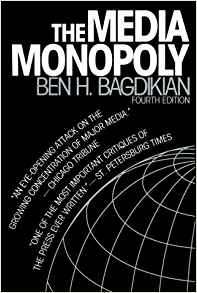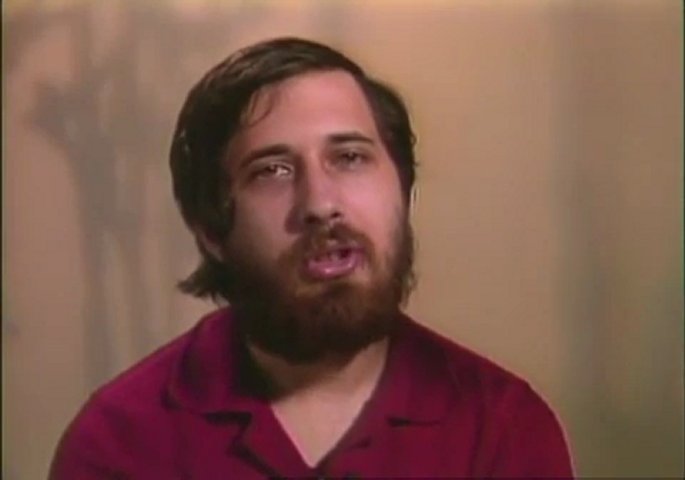The Crumbling Intellectual Infrastructure of Free Software & Free Culture Licensing
Do Licenses Drive Communities or Do Communities Drive Licenses?
Bradley M. Kuhn
FSCONS 2017
Saturday 4 November 2017
Why This Conference Matters
I work in one small corner of building a more free and just society:
assuring the free licensing of specific works of authorship:
namely, software.
Why This Conference Matters
Why would the licensing of software & other copyrighted works matter to a Free Society?
I believe that withholding users' rights in software via restrictive licensing is intersectional with other forms of oppression..
I believe software freedom as a universal right is a necessary part of removing structural inequalities in our society.
The Printing Revolution Was Unique

The Digital Revolution Is Unique
In the digital age, the barriers to entry in sharing and building atop others' ideas evaporate in revolutionary ways not seen since the age of the printing press.
The Digital Revolution Is Not Unique
Just as the Digital Revolution was beginning, centralized for-profit monoculture already had consolidated its power over media.

Relating This to Software Freedom
The digital age is dictated by the behavior of the software on which we rely.
Relating This to Software Freedom
The line between software and content continue to blur.
But regardless, both are delivered digitally, and (absent a system of hierarchical control) can be freely copied and shared.
The Fallout of the Media Monopoly
All works of authorship, including software, were fully governed and controlled by various legal regimes, most notably copyright.
This system remains entrenched and virtually undefeatable.
The Advent of Copyleft

Richard Stallman was the first to notice the fundamental problem: software is the core functional work of the digital age, and who controls its source code decides who controls the society.
The Advent of Copyleft
The key idea RMS will be remembered for in the history books: using the copyright system against itself to liberate software & all works of authorship
Copyleft's First Principle
Copyleft is a strategy of utilizing copyright law to pursue the policy goal of fostering & encouraging the equal & inalienable right to copy, share, modify & improve creative works of authorship. Copyleft … describes any method that utilizes the copyright system to achieve the aforementioned goal. Copyleft as a concept is usually implemented in the details of a specific copyright license … Copyright holders of creative work can unilaterally implement these licenses for their own works to build communities that collaboratively share & improve those copylefted creative works.— Definition of copyleft from copyleft.org
Software Freedom As Actual First Principle
The right for users to copy, share, modify — and otherwise improve and make effective use of those improvements — should not be infringed.
Copyleft is a strategy to help us achieve that first principle.
Constitution and Law
I used to say: “copyleft is the Constitution of software development community”.
But, really, copyleft is more akin to a detailed legal statue.
Copyleft suffers from the same problems any legal statue: how is it enforced, who can enforce it, and are their loopholes in the system?
So, Is It Working?
Meanwhile, we could, and should, consider:
Does copyleft work at all?
& do we even need licensing as part of creating a free society and free culture?
Do We Even Need Licensing?
"POSS" was first coined (circa 2012) by James Governor of analyst firm RedMonk:
younger devs today are about POSS – Post open-source software. fuck the license and governance, just commit to github.
POSS As Anarchy?
The whole idea that democratized sharing “just works out” is a privileged assumption.
The powerful have always use gaps in rules to remove equality from the equation.
Anarchy sounds good to me, Then someone asks, 'Who'd fix the sewers?'— Jello Biafra of the Dead Kennedys
So, Copyleft! Right?
This tendency of the powerful to manipulate systems to constrain individual liberty is why I think, as Churchill said of democracy:
copyleft is the worst way to license creative works of authorship, except for all the others that have been tried.
Why is Copyleft Failing?
First of all, I don't blame POSS — not really. It's a symptom of a bigger problem.
Companies Found a Way To Control Software Anyway
The for-profit regime relies on lots of Open Source and Free Software, much of which is copylefted.
Copyleft treats commercial and non-commercial activity at equal importance.
But for-profit exploitation has upset that balance.
Companies Found a Way To Control Software Anyway
Some problems copyleft faces daily from for-profit world:
- Contributor License and/or Assignment Agreements (CLAs) that shift away the rights assured by copyleft licensing.
Companies Found a Way To Control Software Anyway
Some problems copyleft faces daily from for-profit world:
- Widespread violations of on copylefted software with limited resources for its enforcement.




Companies Found a Way To Control Software Anyway
Some problems copyleft faces daily from for-profit world:
- Monetized enforcement of copyleft by rogue actors.
- Use of CLAs to achieve such monitization.
Companies Found a Way To Control Software Anyway
A short list of problems copyleft faces daily:
- Corruption of institutions and individuals who were entrusted with upholding copyleft (particularly for specific key copylefted works).
Two Key Problems Are Root Cause
These problems are just details; the overarching issues matter more.
First Root Cause Problem
- Companies have been successful in exploiting Free Software and convincing key developers to give up their own copyright interests & push codebases in directions companies want.
Developers Without The Gilded Cage
Software freedom activism was easier when it was a fringe activity.
The benefits of collaborative, egalitarian community development were only possible by joining a radical effort to liberate software.
Developers Living in The Gilded Cage
For-profit exploiters and coopters have successfully separated the Open Source development model from the radical change motivations of software freedom.
Developers end up actually befuddled by companies who seem to want to do the right thing, but subtly move the focus away from universal software freedom.
Second Root Cause Problem
- Integration with network services means interesting computing problems require large body of Free Software and Free Culture works that interact.
The Network Service Problem
We've done ourselves a disservice thinking of Google Search as the main issue.
Consider Google Maps instead…
Good Enough is Not Enough
We have Free Software and Free Data, collaboratively collected and developed, to replace so many applications that rely on proprietary code and data of Google Maps.
So, why do so we rely on Google Maps?
Good Enough is Not Enough
The applications and data are inadequate as drop-in replacements today.
But what's stopping us from making it better?
Good Enough is Not Enough
Copyleft is not sufficiently trusted as a legal assurance that innovators commercially rely on it to make adequate infrastructural investments.
Did Copyleft Outright Fail as a Strategy?
No.… but it is legal infrastructure ill-equipped to handle excessively early success and the cooption that follows.
Is There Any Room for Optimism?
As underresourced as software freedom activists have been, the for-profit corporate power structure seems unduly afraid of us.
That means we're making them nervous by doing something right.
We Have Met the Enemy, and They are Us
I blame complacency with high developer salaries and privileged expectation by those who create new technology.
Just One Recommendation
Merely questioning decision-making about what technology employers ask us to create and why, and making rather simple demands for individual developer control of the software they create (e.g., by keeping their own copyrights) is easy collective action that will make a huge impact on these problems.
More Info / Talk License

URLs / Social Networking / Email:
- Pls. support Conservancy
- The Copyleft Guide is available & welcomes contributions at copyleft.org
- You can join the GPL enforcement coalition of Linux developers.
- Conservancy: sfconservancy.org & @conservancy.
Presentation and slides are: Copyright © 2017 Bradley M. Kuhn, and are licensed under the Creative Commons Attribution-Share Alike 4.0 International License.